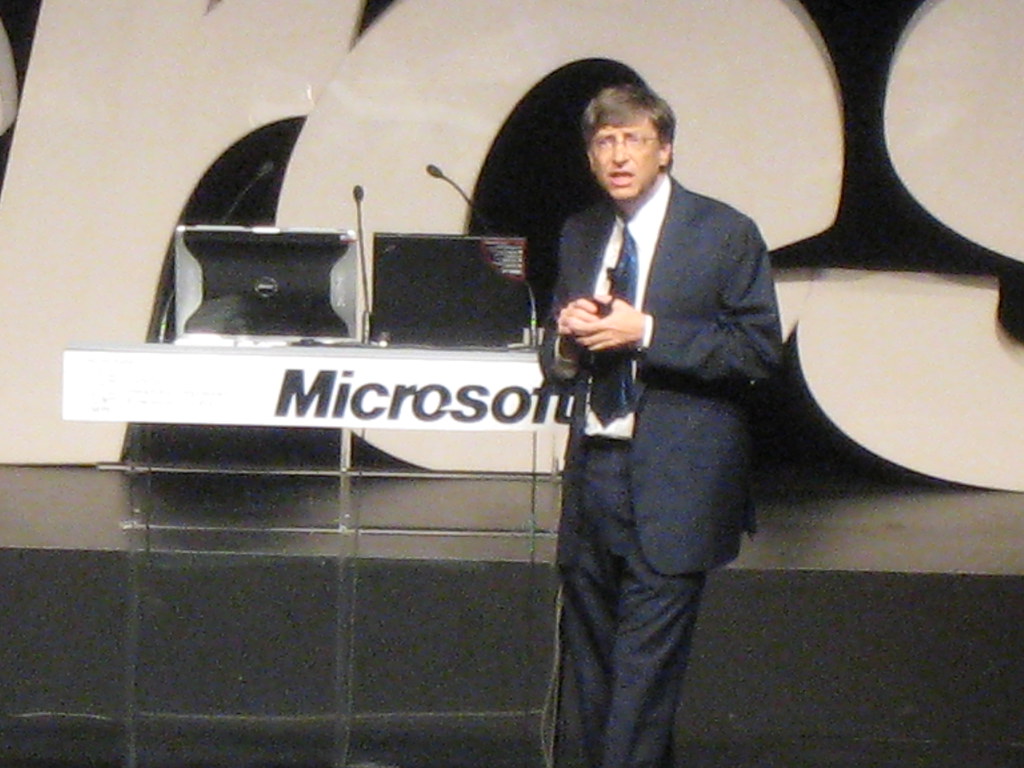
In the demanding landscape of global business and philanthropy, few individuals exemplify sustained high performance and multifaceted achievement quite like Bill Gates. From co-founding Microsoft and revolutionizing personal computing to spearheading the Bill & Melinda Gates Foundation’s monumental efforts in public health, education, and poverty alleviation, his impact is profound and far-reaching. Such an extraordinary trajectory is not merely a product of innate talent; it is meticulously cultivated through a disciplined approach to daily life and an unwavering commitment to personal growth. Behind his monumental success lies a set of daily habits that fuel his productivity, creativity, and personal development. These habits offer invaluable lessons for anyone aspiring to maximize their potential.
Career coach Bill Hoogterp, who has advised countless Fortune 500 executives and top performers, emphasizes a crucial commonality among the world’s most successful individuals: they consistently invest in their own potential. Hoogterp recalls Gates blocking off an entire week solely for reading in a secluded cabin, a practice he notes is increasingly adopted by more leaders. He posits that this proactive self-investment is a fundamental differentiator, urging a mindset where individuals act as the ‘CEO of our own potential,’ rather than passively reacting to external demands. This strategic approach to self-development, consistently applied, is what transforms potential into tangible, compounding success over decades.
Understanding the rituals and routines of a figure like Gates can provide actionable insights for professionals at any stage of their career, from aspiring entrepreneurs to seasoned leaders. His disciplined approach to life and work offers a robust framework for personal and professional transformation. We delve into the foundational habits that define Bill Gates’s daily routines, exploring how these practices contribute to his unparalleled ability to manage complex ventures and achieve enduring success. It’s an opportunity to learn from one of the most effective minds of our time and consider how these proven strategies can be integrated into our own lives to foster continuous growth and impact.

1. **Micro-Scheduling for Optimal Productivity**
One of the most striking aspects of Bill Gates’s approach to time management is his rigorous micro-scheduling. He is renowned for breaking his day into precise five-minute blocks, a method designed to optimize every moment and ensure deep engagement with diverse projects. This granular level of planning allows him to navigate an incredibly demanding schedule, addressing a multitude of high-stakes responsibilities across his various endeavors with remarkable efficiency.
This meticulous time-blocking is not about frantic busyness but about strategic allocation. By assigning specific, limited timeframes to tasks, Gates cultivates an environment of intense focus, preventing any single activity from unduly consuming his entire day. It’s a powerful technique for preventing procrastination and maintaining momentum, ensuring that critical items receive dedicated attention without scope creep. The principle here is that even brief, focused intervals can yield significant progress when consistently applied.
The underlying lesson from Gates’s five-minute increment scheduling is the profound value of structuring time. This practical time management strategy underscores the belief that time is a finite and incredibly precious resource. By intentionally carving out these small, structured chunks for specific tasks, Gates reinforces his commitment to purposeful work. This approach ensures that his daily activities align with his broader strategic objectives, making every minute count in his pursuit of innovation and philanthropic impact.
As Bill Hoogterp highlights, how one values time shapes every aspect of life. Gates’s disciplined micro-scheduling vividly demonstrates his conviction that time is “the only commodity money can’t buy.” This philosophy drives him to make intentional choices, cutting out distractions and focusing on what truly propels him forward. It is a powerful reminder that while the method may seem extreme, the core principle of structuring time is universally applicable for anyone seeking to enhance their productivity and impact.

2. **Minimizing Distractions for Laser Focus**
Integral to Bill Gates’s extraordinary productivity is his unwavering commitment to minimizing distractions, a practice he embraced with remarkable intensity early in his career. While in his 20s, a period critical for Microsoft’s foundational growth, Gates famously made the radical decision to cease listening to music and watching television for five full years. This extreme measure was a deliberate strategy to cultivate an environment of singular focus on his work, eliminating potential diversions that could dilute his attention.
This choice highlights a deep understanding of the cognitive demands required for groundbreaking innovation and intense problem-solving. By consciously removing these common forms of entertainment, Gates created mental space that allowed for sustained, uninterrupted concentration on developing Microsoft’s vision and products. It was an investment in his mental capital, ensuring that his most valuable resource—his attention—was directed exclusively towards his core objectives.
In today’s hyper-connected world, where distractions are ubiquitous and constant, Gates’s early discipline offers a potent lesson. While few may choose such drastic measures, the principle of identifying and actively reducing personal distractions remains critically important. It underscores the idea that achieving peak performance often requires intentional efforts to protect one’s mental bandwidth from fragmentation.
The ability to maintain laser focus is not merely about willpower; it’s about strategically shaping one’s environment and habits to support concentration. Gates’s example illustrates that safeguarding focus is a proactive endeavor, one that can significantly enhance one’s capacity for deep work and strategic thinking. This commitment to an undistracted workflow laid a critical foundation for his future successes, both at Microsoft and in his extensive philanthropic work.
Read more about: The Definitive Guide: We Tested 10 Leading Video Conferencing Apps to Find Your Perfect Match
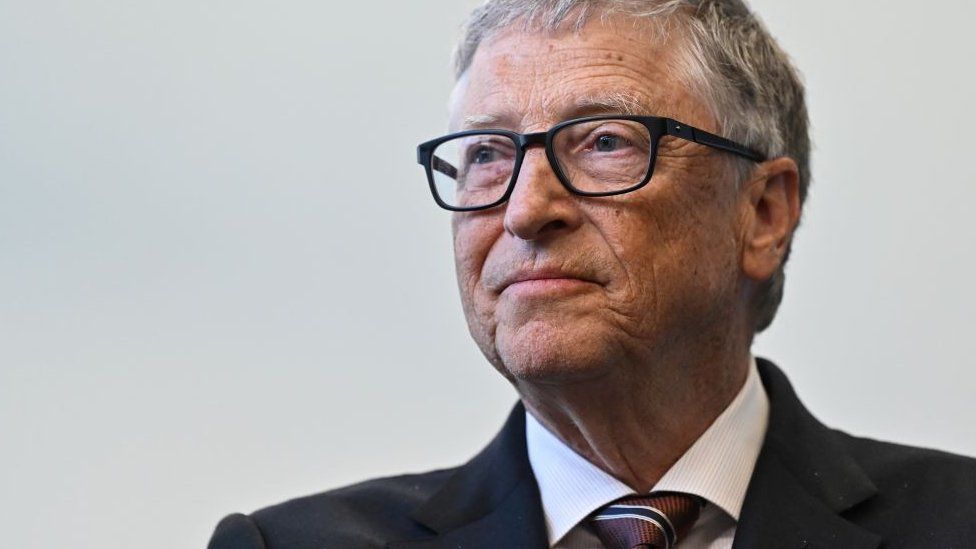
3. **The Transformative Power of “Think Weeks”**
Perhaps one of Bill Gates’s most iconic and impactful habits is his practice of “Think Weeks.” Twice a year, when leading Microsoft, Gates would embark on a week-long retreat in isolation, completely disconnecting from daily responsibilities and avoiding meetings. During these periods, he would immerse himself in reading and deep, uninterrupted thinking, a practice he describes as “transformative to his life.” This sustained solitude allowed him to process ideas, scrutinize research, and contemplate strategic priorities without the noise of daily operations.
These “Think Weeks” were not merely a break but a deliberate strategy for fostering innovation and making high-level decisions. The context explicitly states that this practice has “influenced major decisions both at Microsoft and the Gates Foundation,” underscoring its profound impact. It provided him with the necessary mental space to anticipate trends, creatively solve complex problems, and forge a clear strategic path forward, unburdened by immediate operational demands.
Hoogterp observes that “More and more leaders are doing the same thing,” recognizing the value of truly going off the grid. This commitment to structured periods of reflection highlights how seriously the most successful people take their own learning and growth. It’s a testament to the belief that profound insights often emerge from deliberate disengagement and focused contemplation, rather than constant activity. The purpose is not just to read, but to think deeply *with a purpose*.
For Gates, these weeks serve as a crucial mechanism for continuous learning and strategic clarity. They are periods dedicated to getting through the “stack of books you’ve been meaning to get to, or TED talks or articles, or a little bit of both.” By dedicating protected time for learning and mental nourishment, Gates ensures he’s not just reacting to problems but proactively shaping the future, a habit that anyone can adopt on a smaller scale to fuel their creativity and strategic thinking.

4. **Avid Reading & Lifelong Learning**
At the core of Bill Gates’s intellectual prowess and strategic acumen is his profound commitment to avid reading. Gates reportedly reads approximately 50 books per year, a prodigious volume that translates to roughly one book per week. This extensive reading habit spans a vast array of topics, from cutting-edge technology and scientific advancements to global public health and historical narratives, consistently fueling his broad intellectual pursuits and informing his strategic decisions.
This consistent engagement with diverse literature is not merely a pastime; it is a fundamental component of his learning strategy. Bill Hoogterp emphasizes that “The top leaders in the world spend an hour a day reading,” often beginning their mornings with a book. Gates’s nightly reading sessions are specifically reserved for this purpose, a habit that not only expands his knowledge base but also directly informs his philanthropic strategies and strengthens his capacity for critical analysis.
Gates believes that time for reading and uninterrupted thought fuels creativity, strategic clarity, better leadership, and personal growth. Books act as both a learning tool and a source of inspiration, helping him anticipate trends, solve problems creatively, and lead with greater wisdom. This relentless pursuit of knowledge through reading underscores his commitment to continuous self-improvement and staying ahead in rapidly evolving fields.
His reading list, which has included titles like “Upheaval,” “Nine Pints,” and “How to Lie with Statistics,” reflects a broad intellectual curiosity. This consistent input of new information and diverse perspectives is crucial for complex decision-making, allowing him to identify emerging patterns and connect disparate ideas, which is vital for managing multiple, complex charitable ventures with global impact.
Read more about: Beyond Broccoli: Decoding Warren Buffett’s Peculiar Daily Diet and Surprising Longevity Secrets
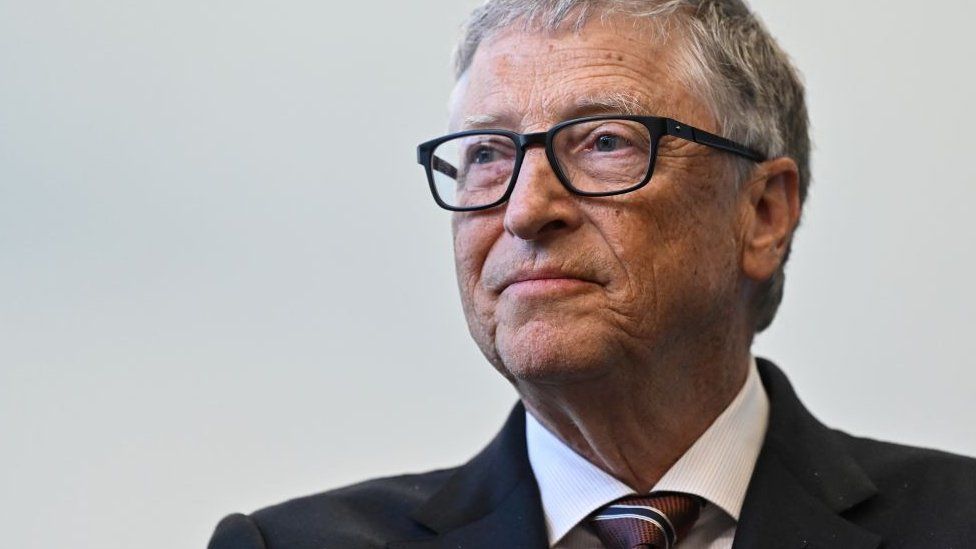
5. **Carrying Knowledge Everywhere: Always Accessing New Ideas**
Beyond dedicated reading sessions, Bill Gates embodies a pervasive commitment to intellectual readiness by literally carrying knowledge with him wherever he goes. He is known for always having a tote bag full of books, a simple yet powerful habit that emphasizes the importance of having access to new ideas and information at all times. This practice ensures that even in transitional moments or unexpected downtime, he can engage in learning and reflection, turning idle minutes into opportunities for intellectual growth.
This habit speaks to a broader philosophy of continuously feeding the mind with a “disparate diet.” Hoogterp suggests that individuals should mix their learning modalities, but emphatically states, “reading really is the key here.” He explains that “You retain almost 31% more when you read something than when you listen to it on audiobooks, because you’re actively processing versus passively processing.” Carrying books facilitates this active engagement consistently throughout the day.
Furthermore, Gates’s approach to reading involves active processing, similar to taking notes in school. Hoogterp advises, “get the pen out, like when you were back in school writing notes in the margin of the book because you think it might be on the test. Oh, this makes me think this.” This physical act of writing reinforces memory and deeper comprehension, as “Your brain remembers you writing the words, which means you’re actively processing much deeper, much faster, much more powerfully.”
The habit of always having reading material at hand exemplifies a proactive stance towards continuous learning. It transforms passive waiting times into productive intellectual endeavors, ensuring that Gates is constantly absorbing, analyzing, and synthesizing new information. This constant intellectual nourishment is a quiet, yet profoundly effective, component of his sustained success and ability to manage complex global challenges.
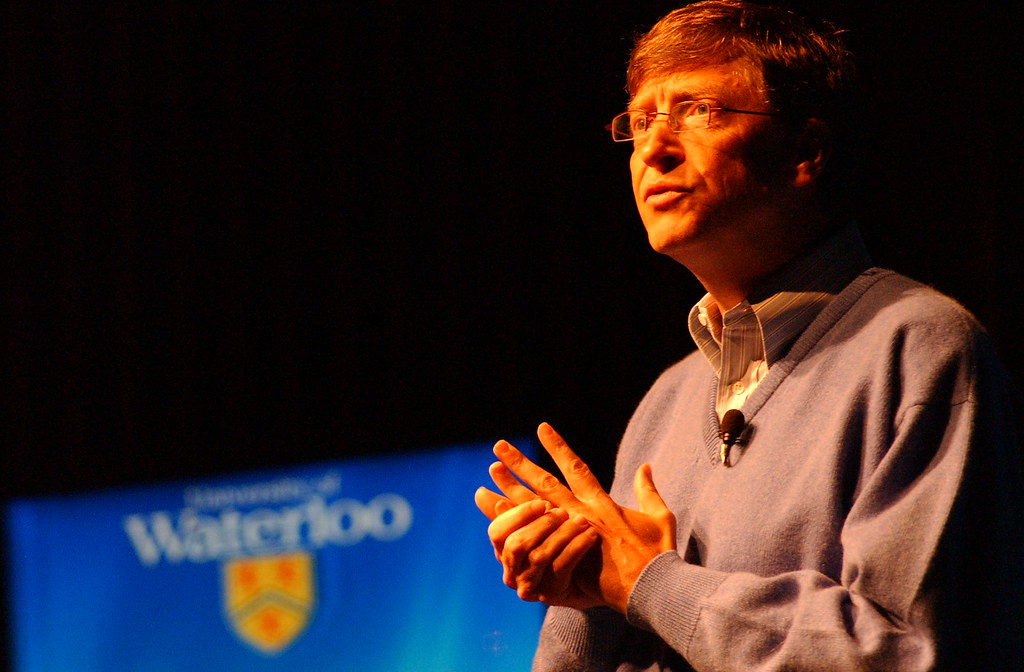
6. **Goal-Oriented Reviews for Accountability**
Effective leadership, especially across diverse and complex ventures, hinges on clear objectives and robust accountability mechanisms. Bill Gates employs a disciplined habit of conducting goal-oriented reviews, setting clear goals and monitoring the progress of various initiatives through weekly check-ins. This systematic approach ensures that projects remain on track, resources are optimally utilized, and teams are aligned with overarching strategic priorities.
These regular reviews serve multiple critical functions. They provide a structured opportunity to assess performance against established metrics, identify potential roadblocks, and make timely adjustments. By consistently reviewing progress, Gates fosters a culture of accountability, where outcomes are scrutinized and insights are gleaned for future improvements. This habit is essential for maintaining momentum and effectiveness across the vast landscape of the Gates Foundation’s philanthropic work, which often involves long-term, multi-stakeholder initiatives.
The discipline of weekly reviews allows Gates to maintain oversight of a wide array of projects without micromanaging. It empowers project leaders to report on their progress and challenges, ensuring transparency and collective ownership of outcomes. This habit is a cornerstone of his leadership, enabling him to steer complex organizations and initiatives with precision and purpose.
Such systematic evaluation is not limited to business; it’s a universal principle for achieving ambitious goals. By embedding these reviews into his routine, Gates ensures that strategic intent translates into tangible action and measurable impact. It’s a practical demonstration of how effective leaders ensure their vision is consistently realized through diligent execution and continuous oversight.
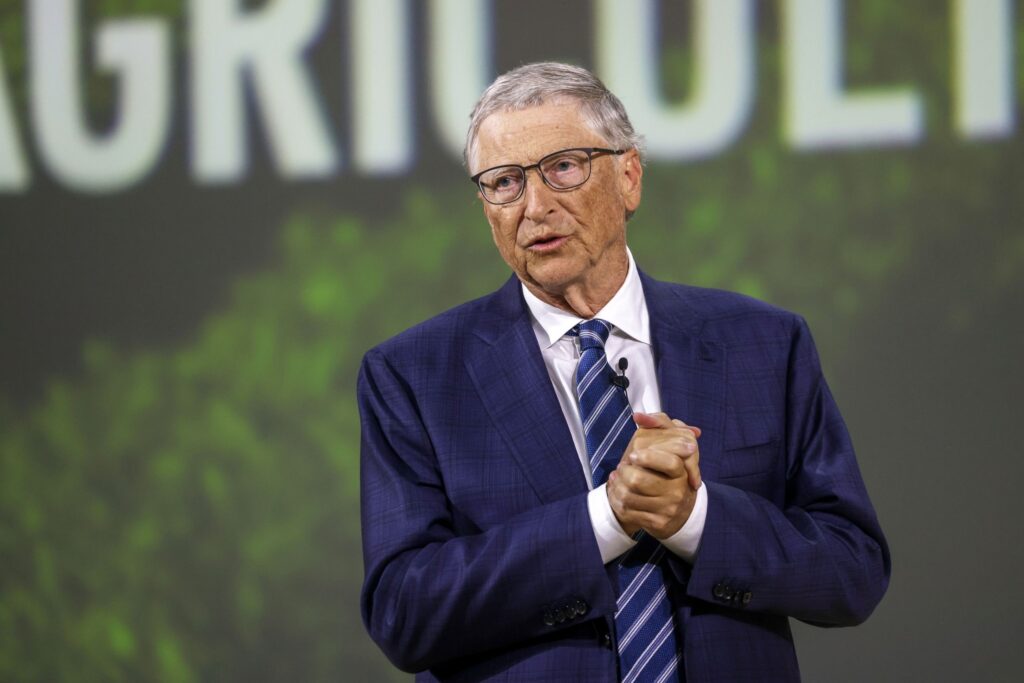
7. **The Value of Constant Feedback and Coaching**
Bill Gates’s commitment to continuous improvement extends profoundly to his embrace of constant feedback and mentorship. He places significant value on input from others and actively seeks out mentors and advisors, understanding that external perspectives are crucial for refining strategies and identifying blind spots. This openness to constructive criticism and diverse viewpoints is a hallmark of his growth mindset.
Gates articulates this philosophy clearly in his 2013 TED Talk, stating, “Everyone needs a coach. It doesn’t matter whether you’re a basketball player, a tennis player, a gymnast or a bridge player. We all need people who give us feedback. That’s how we improve.” This quote underscores his belief that feedback is not a luxury but a fundamental necessity for personal and professional development. It dismantles the notion that highly successful individuals are beyond the need for guidance, emphasizing instead that it is a continuous process for everyone.
Hoogterp’s coaching firm, LifeHikes, has helped thousands of professionals level up their communication and leadership skills, reinforcing the universal need for structured feedback. Gates’s willingness to actively seek and incorporate feedback from coaches and advisors demonstrates a profound humility and an unwavering dedication to honing his capabilities. It is a powerful example of how even at the pinnacle of success, one must remain a student, always open to learning and evolution.
This habit of seeking external validation and guidance is pivotal for navigating the complexities of his various ventures. Feedback provides crucial data points for decision-making, allowing him to adapt, innovate, and lead more effectively. By building a network of trusted advisors and actively soliciting their insights, Gates ensures that his strategies are robust, well-considered, and continuously refined, leading to enhanced performance and impact.
Read more about: Elevating Your Professional Narrative: 14 Resume Phrases HR Experts Advise Against

8. **Prioritizing Physical Exercise for Peak Performance**
Beyond his intellectual pursuits and rigorous work schedule, Bill Gates maintains a profound commitment to physical well-being. He makes regular exercise a non-negotiable priority, understanding that physical activity is not merely a leisure pursuit but a crucial component of sustained high performance and cognitive function. This deliberate integration of fitness into his demanding routine underscores a holistic view of productivity, recognizing the synergy between a healthy body and a sharp mind.
Gates’ exercise regimen is diverse and strategically chosen to maintain both physical health and mental engagement. He enjoys treadmill workouts, often combining them with educational videos or courses. This dual-purpose activity exemplifies his efficiency, transforming exercise time into an opportunity for continuous learning. It’s a powerful method for integrating intellectual growth with physical conditioning, ensuring no moment is truly wasted.
His passion for sports extends to tennis and golf. Gates is an enthusiastic tennis player, often using the sport as a way to stay fit and unwind. He has even participated in charity tennis events and played with professional athletes, showcasing how competitive and social activities can contribute to overall well-being. Golf, while less intense, provides him with an opportunity to spend time outdoors, socialize, and engage in moderate physical activity, further diversifying his fitness approach.
Recognizing the value of variety, Gates also engages in activities like skiing and hiking. This varied approach challenges his body in different ways, prevents monotony, and helps maintain a broad range of physical capabilities. Such deliberate variation in his fitness routine is a testament to his strategic thinking, even in personal habits, ensuring comprehensive physical conditioning that supports his intense professional life.
Read more about: The Blueprint to a Leaner You: Tim McGraw’s 40-Pound Weight Loss & Performance-Boosting Lifestyle

9. **Embracing Mindfulness and Mental Well-being**
Integral to Bill Gates’s sustained intellectual and professional capacity is his dedication to mental well-being, particularly through mindfulness practices. In a world saturated with information and demands, the ability to cultivate inner calm and clarity is paramount for high-level decision-making and innovation. Gates actively incorporates these practices into his life, demonstrating that mental discipline is as critical as intellectual rigor.
One notable practice is his meditation routine. Gates meditates two or three times a week for approximately ten minutes each session, often utilizing the Headspace app. This consistent, albeit brief, commitment to meditation reflects an understanding of its power to reduce stress, improve focus, and enhance emotional regulation. It provides a structured pause for mental rejuvenation, allowing him to approach challenges with greater equanimity and clearer thought.
His renowned “Think Weeks,” while primarily discussed as a productivity habit for deep reading and strategic contemplation, also serve as profound exercises in mindfulness. During these periods of isolation, Gates disconnects from daily distractions, allowing for uninterrupted reflection and mental processing. This dedicated time for quiet introspection is a form of intensive mindfulness, enabling him to synthesize complex information and generate innovative solutions free from external noise.
By intentionally carving out time for both formal meditation and extended periods of contemplative thinking, Gates underscores the importance of actively managing one’s mental landscape. These practices ensure that his mind remains sharp, resilient, and capable of handling the immense pressures associated with managing numerous global ventures. It’s a powerful lesson in self-care as a foundation for effective leadership.
Read more about: Strategic Spending for Sustainable Happiness: 12 Scientifically-Backed Purchases That Transform Well-being

10. **Cultivating a Healthy Diet and Mindful Eating**
A critical, yet often underestimated, aspect of Bill Gates’s holistic approach to high performance is his attention to diet and mindful eating. Recognizing the direct link between nutrition and cognitive function, Gates follows a dietary philosophy that supports sustained energy levels, mental clarity, and overall physical health. This disciplined approach to food mirrors the precision he applies to other areas of his life, viewing diet as a fuel source for his extensive endeavors.
His dietary focus leans towards plant-based foods, emphasizing fruits, vegetables, and plant-based proteins. This choice aligns with established nutritional science for promoting long-term health and providing a steady supply of nutrients essential for brain function. By prioritizing nutrient-dense whole foods, Gates ensures his body and mind receive the optimal building blocks for demanding intellectual and physical activity.
Moderation is a cornerstone of his eating habits. Gates follows a balanced approach, consciously avoiding excessive consumption of unhealthy foods and consistently staying hydrated by drinking plenty of water throughout the day. This measured strategy helps prevent energy crashes and maintains stable blood sugar levels, critical for maintaining focus and alertness over long workdays. It’s not about strict deprivation but about intelligent choices.
Furthermore, Gates practices mindful eating, which includes portion control, eating slowly, and paying close attention to hunger and fullness cues. This mindful engagement with food enhances digestion and prevents overeating, fostering a healthier relationship with food. For sustained energy between meals, he opts for nutrient-dense snacks like fruits, nuts, and seeds, strategically fueling his body to avoid dips in concentration and productivity.
Read more about: Beyond Smoking: Unmasking the Daily Habits That Accelerate Brain Aging, According to Doctors

11. **Nurturing Quality Social Connections**
Despite his incredibly demanding professional life, Bill Gates recognizes and actively prioritizes the importance of social connections, understanding that robust personal relationships are fundamental to overall well-being and sustained success. He deliberately maintains a healthy balance between his professional and personal life, acknowledging that strong relationships serve as a crucial support system, helping to mitigate the immense pressures of his work.
A key habit is making a point to spend quality time with his family and friends. Gates understands that these strong bonds are the bedrock of happiness and provide essential emotional support. This commitment ensures that even amidst his global responsibilities, his personal life remains nurtured, reflecting a belief that professional achievements are enhanced, not hindered, by a fulfilling personal sphere.
His ability to fully disconnect from work during vacations and special occasions is another vital aspect of his social habits. This intentional separation allows him to fully immerse himself in personal interactions, recharge his mental and emotional batteries, and return to his professional responsibilities with renewed vigor and a fresh perspective. It’s a strategic pause that benefits both his personal relationships and his professional effectiveness.
Gates actively works to cultivate and maintain meaningful connections, extending beyond his immediate family and friends to include colleagues and partners. This broader approach not only enriches his personal life by fostering a diverse network but also significantly strengthens his professional collaborations. By investing in these relationships, Gates builds trust and rapport, which are invaluable assets in managing complex philanthropic and business ventures.
Read more about: Why Austin, Texas is the New A-List Haven: A Deep Dive into Celebrity Homes and Lifestyles
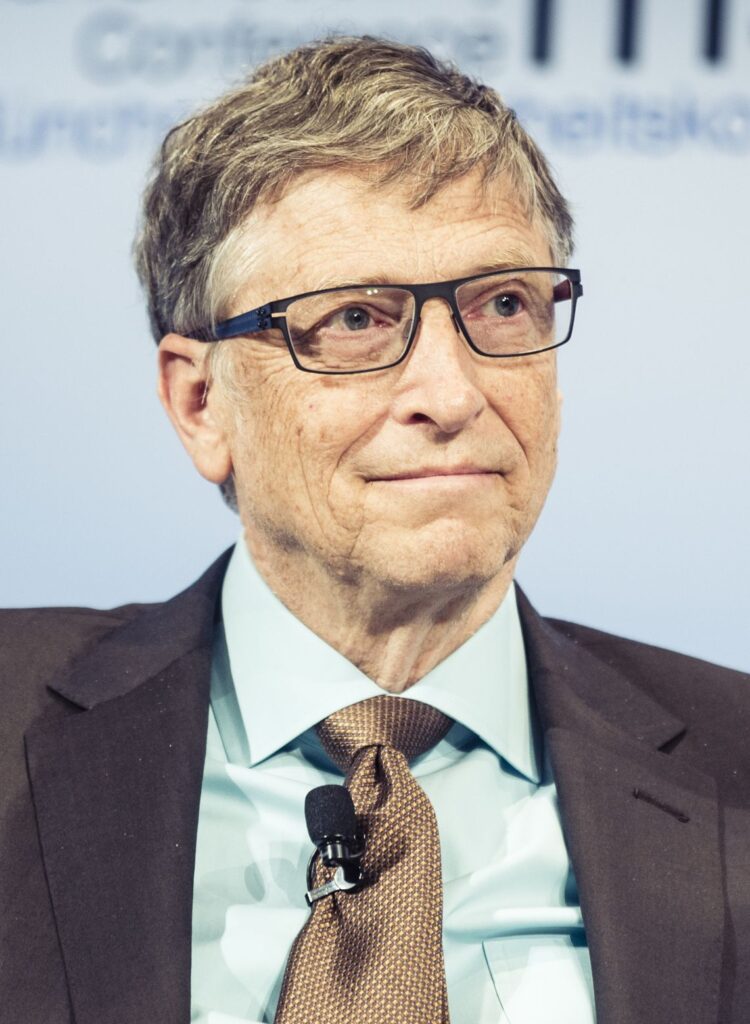
12. **Strategic Delegation for Amplified Impact**
Another cornerstone of Bill Gates’s remarkable ability to manage twelve different charitable ventures, alongside his other commitments, is his profound mastery of strategic delegation. This isn’t merely about offloading tasks; it’s a sophisticated leadership habit that amplifies his impact by empowering others and optimizing his own highly valuable time for high-level strategic thinking. He fundamentally understands that true leadership involves trusting and leveraging the capabilities of a competent team.
At both Microsoft and the Bill & Melinda Gates Foundation, Gates has made it a priority to hire individuals whose judgment he profoundly respects and who possess the capability to execute tasks effectively without requiring constant oversight. This discerning approach to team building ensures that he is surrounded by top talent who can take ownership and deliver results, thereby distributing the workload and multiplying the organizational capacity.
By relying on skilled professionals to meticulously handle operational details and project specifics, Gates strategically frees himself from being bogged down by routine administrative or tactical matters. This liberation allows him to channel his unique intellectual prowess and leadership focus onto high-impact decisions, long-term strategic planning, and truly visionary thinking that shapes the future direction of his initiatives.
Effective delegation, as practiced by Gates, is not an abdication of responsibility but rather a deliberate act of empowering his teams. It fosters an environment where team members are encouraged to take initiative and grow professionally, while simultaneously enabling Gates to maintain an overarching strategic perspective necessary for navigating complex global challenges. This approach underscores that multiplying one’s impact often comes from wisely trusting and enabling others.
Read more about: China’s Military Ambitions and the F-35 Conundrum: Unpacking the Geopolitical Realities in the Indo-Pacific
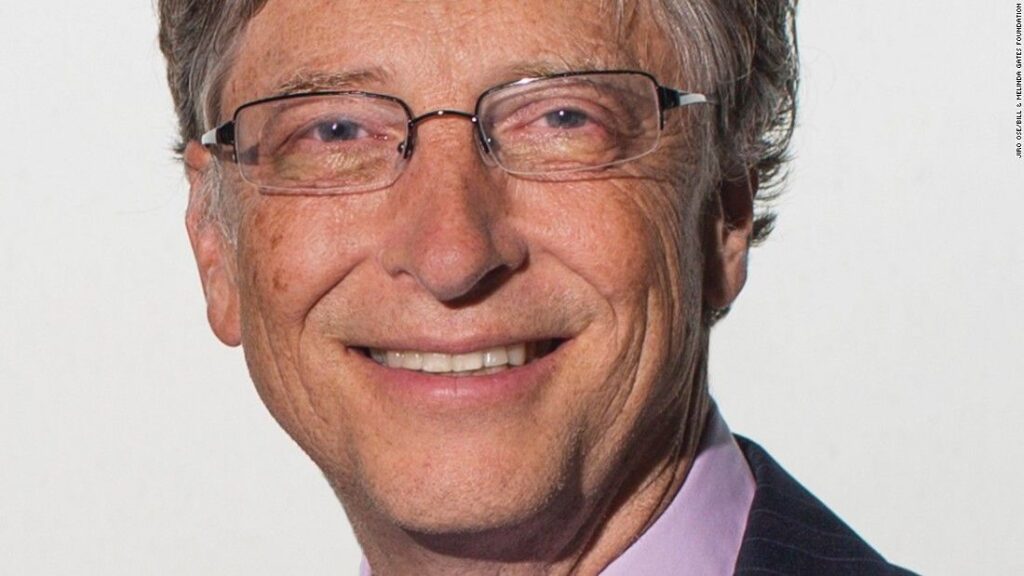
13. **The Wisdom of Prioritizing Rest and Relaxation**
In the often-overlooked yet critically important domain of sustained productivity, Bill Gates exemplifies the profound wisdom of prioritizing rest and relaxation. Despite his famously demanding schedule, he intentionally builds structured downtime into his routine, recognizing that relentless work without adequate recovery is ultimately counterproductive. His philosophy asserts that peak performance is not achieved through endless hustle, but through a thoughtful balance that nurtures both mind and body.
Gates, who is naturally a night owl, consciously adheres to a consistent sleep schedule, typically going to bed around midnight and waking up at 7 a.m. This commitment ensures he consistently achieves a full seven hours of sleep. He openly acknowledges that failing to get sufficient rest negatively impacts his attention span, alertness, and overall health, demonstrating a clear understanding of sleep’s foundational role in cognitive function and well-being.
Beyond just sleep, Gates carves out dedicated time for exercise, leisure reading, and various forms of relaxation. These deliberate pauses are not seen as luxuries but as essential investments in his capacity to think clearly, innovate, and lead effectively. He understands that the brain, like any muscle, requires periods of rest to consolidate learning, process information, and regenerate creative energy.
Prioritizing rest serves as a powerful preventative measure against burnout, a common pitfall for high achievers. It directly improves decision-making capabilities, sharpens focus, and significantly boosts creativity. Gates’s approach serves as a compelling reminder that true productivity thrives not on constant activity, but on strategic pauses that enable one to reset, stay sharp, and remain resilient for the most impactful work.
Read more about: 12 Stunning Low-Maintenance Landscaping Ideas for the Busy American Homeowner

14. **Time as the Ultimate Non-Renewable Asset**
Underpinning all of Bill Gates’s daily habits, productivity strategies, and approaches to leadership is a profound and unshakeable philosophy: that time is the ultimate non-renewable asset. In a 2017 interview, he famously emphasized this, stating, “time is the only commodity money can’t buy.” This is not merely a statement but a guiding principle that permeates every decision and action, shaping how he manages his extraordinary life.
This conviction that time is his most precious resource dictates a highly intentional approach to life. When time is treated as irrevocably finite, it compels smarter, more deliberate choices about how every minute is spent. It forces a ruthless elimination of distractions, a conscious effort to stop wasting energy on trivial matters, and an unwavering focus on activities that genuinely propel him and his ventures forward.
Gates deeply understands that every moment spent aimlessly is a moment that can never be reclaimed. This mindset is a monumental factor in his sustained success across multiple, complex domains, from revolutionary software development to global philanthropy. It’s a powerful lesson that transcends wealth or status; anyone, regardless of their financial standing, can adopt this profound appreciation for the scarcity and value of time.
His structured days, micro-scheduling, dedicated “Think Weeks,” and commitment to delegation all emanate from this core belief. These are not arbitrary habits but meticulously crafted strategies designed to maximize the utility of his finite time. By consciously investing his time in learning, strategic thinking, and high-impact activities, Gates ensures that his efforts yield compounding returns, transforming potential into enduring, transformative impact.
Read more about: Understanding the Underlying Factors in US Regional Economic Dynamics: A Deeper Look Beyond Headlines
In essence, Bill Gates’s journey from technological visionary to global philanthropist is a masterclass in intentional living. His habits, far from being eccentricities, form a coherent system designed to optimize every facet of his existence. From the granular five-minute increments of his schedule to the expansive solitude of his ‘Think Weeks,’ and from his disciplined approach to diet and exercise to his profound commitment to lifelong learning and meaningful relationships, each practice is a deliberate investment in his own potential. These are not merely routines; they are the pillars of a life built for sustained achievement and unparalleled impact. By dissecting these practices, we gain not just insight into a remarkable individual, but a blueprint for cultivating our own capacities for continuous growth and making a significant difference in the world. It’s a powerful reminder that while we may not manage twelve charitable ventures, the principles of strategic time management, deep learning, and holistic well-being are universally applicable tools for building a life of purpose and profound accomplishment.



